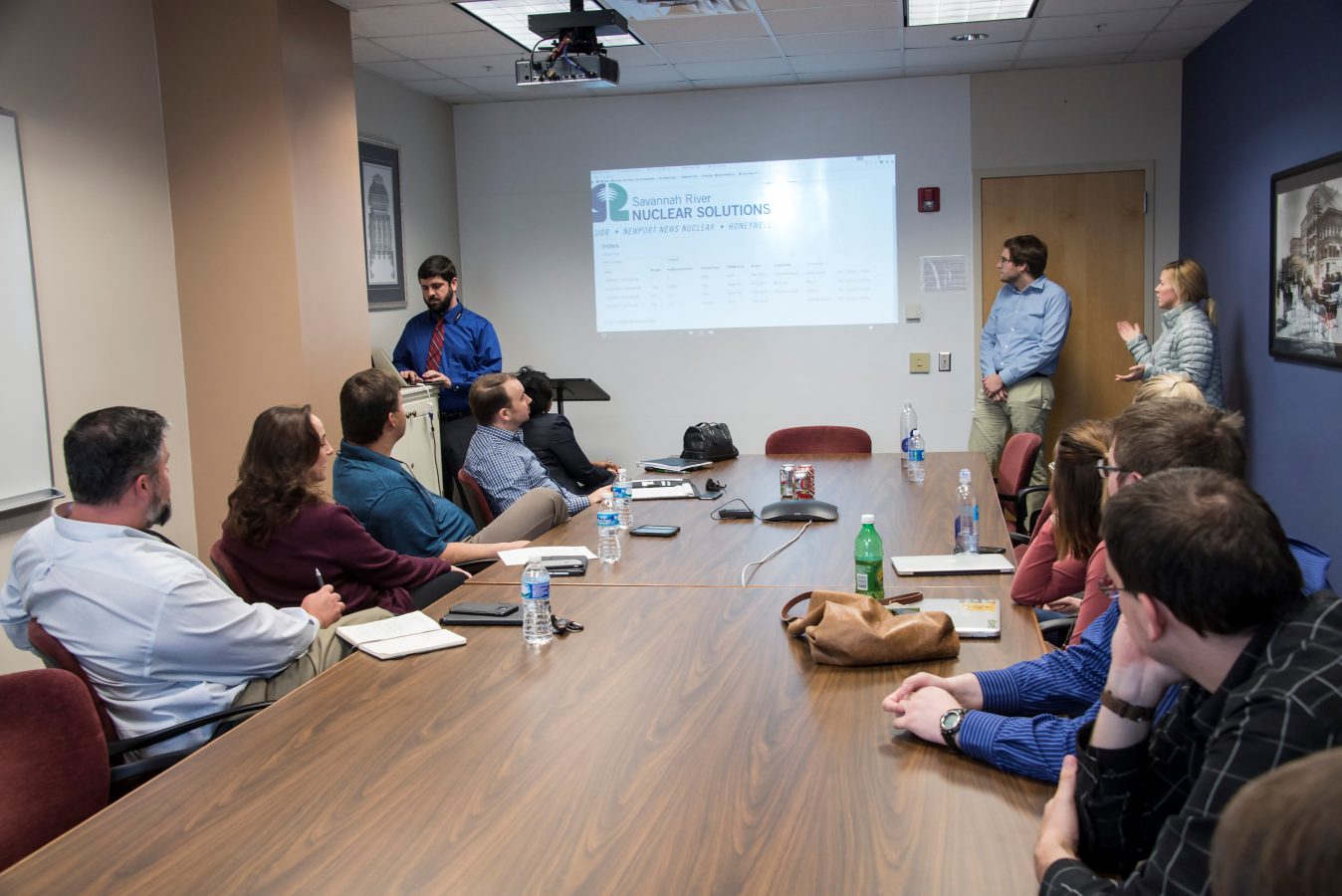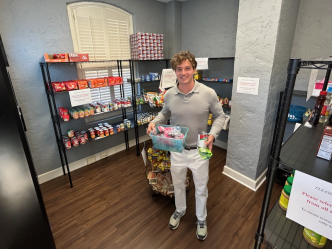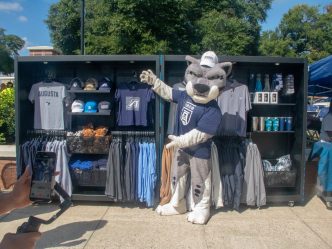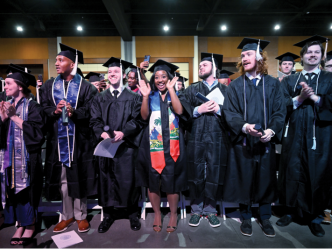AIKEN, S.C. – Managing the developer-client dynamic is a must-have skill for Information Technology (IT) professionals. Since 2012, IT professionals from the Savannah River Site have partnered with Augusta University to help students prepare for the workforce by integrating theories learned in the classroom with a hands-on, client-based project.
Offered annually during the spring semester, the senior capstone course at Augusta University gives computer science majors the experience of building software applications for mock “clients” from Savannah River Nuclear Solutions.
“It’s tremendous – especially for the Information Technology field,” said Dr. Todd Schultz, Professor and Director of Computer & Information Sciences, Augusta University. “The client-based project model can be challenging for professors to simulate in the classroom. You need outsiders to bring in real problems to solve. For it to be successful, the professor has to disengage and allow interactions happen between the student and the client.”
The professor of the capstone course, Dr. Onyeka Ezenwoye, schedules three sessions during the semester. This year, the student teams, comprised of two to four students, initially met to discuss their various project scopes with their SRNS “clients” in January.
“While working on the project, students may get lost,” added Dr. Schultz. “After the students realize they’re lost, they can ask for directions to get back on track. Solving problems on their own prepares them for the workplace. I appreciate the IT professionals from SRNS for crafting the project scenarios for the students and interacting with them throughout the semester.”
The mock clients from SRNS include Jim Posnick, Karla Bunch, Tracy Waller, Kent Weymouth, Pamela Fair and Chuck Messick. Each member presents a scenario based on real needs at the Savannah River Site, and the student teams are called to proactively search for solutions.
“As clients, we try not to consider how the students will use technology to develop a solution,” said Chuck Messick, SRNS Information System Security Officer. “We intentionally provide vague requirements to force discussion and questions so they better understand the problem. Then, we allow them to provide their solution. As mentors, we help along the way with our expertise in application development, cyber security, and functioning as a team. Many times the students are extremely capable technically and work well as team, but need mentorship on communicating with clients, considering cyber security, and fully testing their solution.”
After the first meeting, the students write a requirement proposal, which details the client’s current situation and initiates the first “back and forth” conversation in the client-provider relationship. The SRNS clients review, comment and come to an agreement on the final product. From there, students schedule their own group sessions to research, develop and implement a prototype by the mid-semester meeting, and the SRNS clients provide feedback throughout each stage of the project.
“Our client has been fantastic,” said Miranda McDonald, Augusta University student. “We email him our ideas, and he provides a lot of insight into the complexity of the scenario for our project. He’s been helpful in a way that’s letting us take control, and he’s guiding us in a positive way. Overall, it has been a valuable experience, and it has made our group excited to enter the ‘real world’ after graduation.”
During the third and final meeting for the course, which is scheduled for late April, the students will present the application to the clients and professor. The students will defend how the application meets the original requirements that were established during the January meeting.
“Mentoring the students is something I really enjoy,” added Messick. “We’re professionals in the field, and we do this every day. Anything that I can give the students to help them take the first steps or next steps in their career – I absolutely want to provide that to them. We want the students to be successful in their professional lives.”
Not only has this partnership been an opportunity for SRNS to share knowledge and expertise, but it has also provided a pipeline for interns and full-time employees from the region. As a result of the partnership between Augusta University and SRNS, three graduates who took the capstone course work full-time in the IT department at SRNS, and three former students are currently interning for the company.
“My experience in the capstone course at Augusta University made a significant impact on my career,” said Clint Glover, SRNS Associate Software Engineer. “Before the course, I’d never built software and tested it for a real-life scenario, and I had not experienced the back-and-forth between software developers and clients first-hand. In my job today as a Geographic Information Systems web developer at the Savannah River Site, I interact with clients almost every day.”
About Savannah River Nuclear Solutions
Savannah River Nuclear Solutions is a Fluor-led company whose members are Fluor Federal Services, Newport News Nuclear and Honeywell, responsible for the management and operations of the Department of Energy’s Savannah River Site, including the Savannah River National Laboratory, located near Aiken, South Carolina.
 Augusta University
Augusta University




